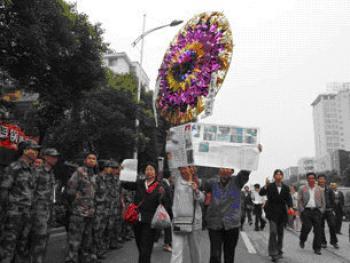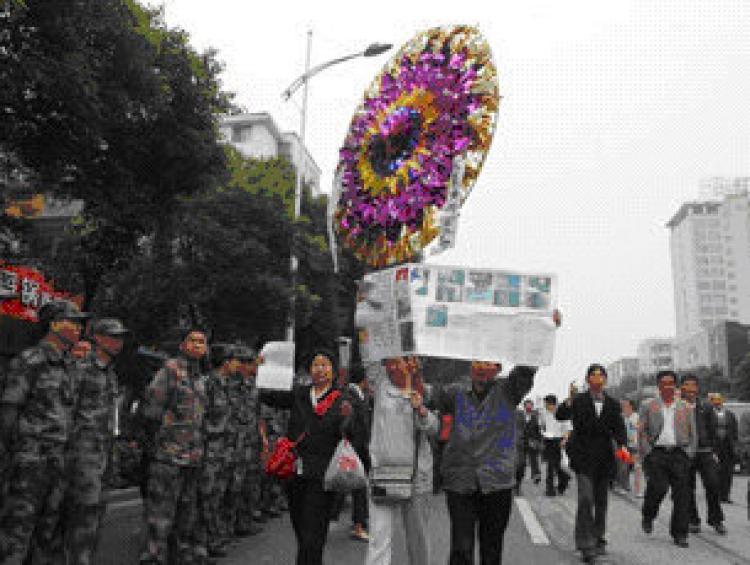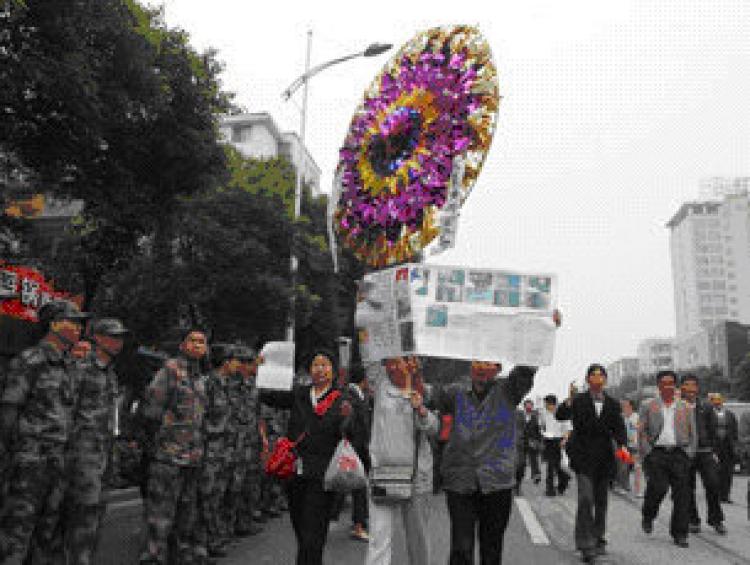China’s judges have become the most recent targets of deadly assaults.
Three judges were shot to death by a postal bank-security officer in Hunan Province on June 1. One week later, in Guangxi Province, a couple splashed sulfuric acid on six court officials, including three judges, inflicting varying degrees of injuries.
Attacks on Judges Reflect Rage Over China’s Judicial System
China’s judges have become the most recent targets of deadly assaults.

A memorial wreath for Zhu Jun is seen on June 2 outside the Lingling District Court, where he killed three judges the previous day. Courtesy of Yongzhou resident to Radio Free Asia
|Updated:




